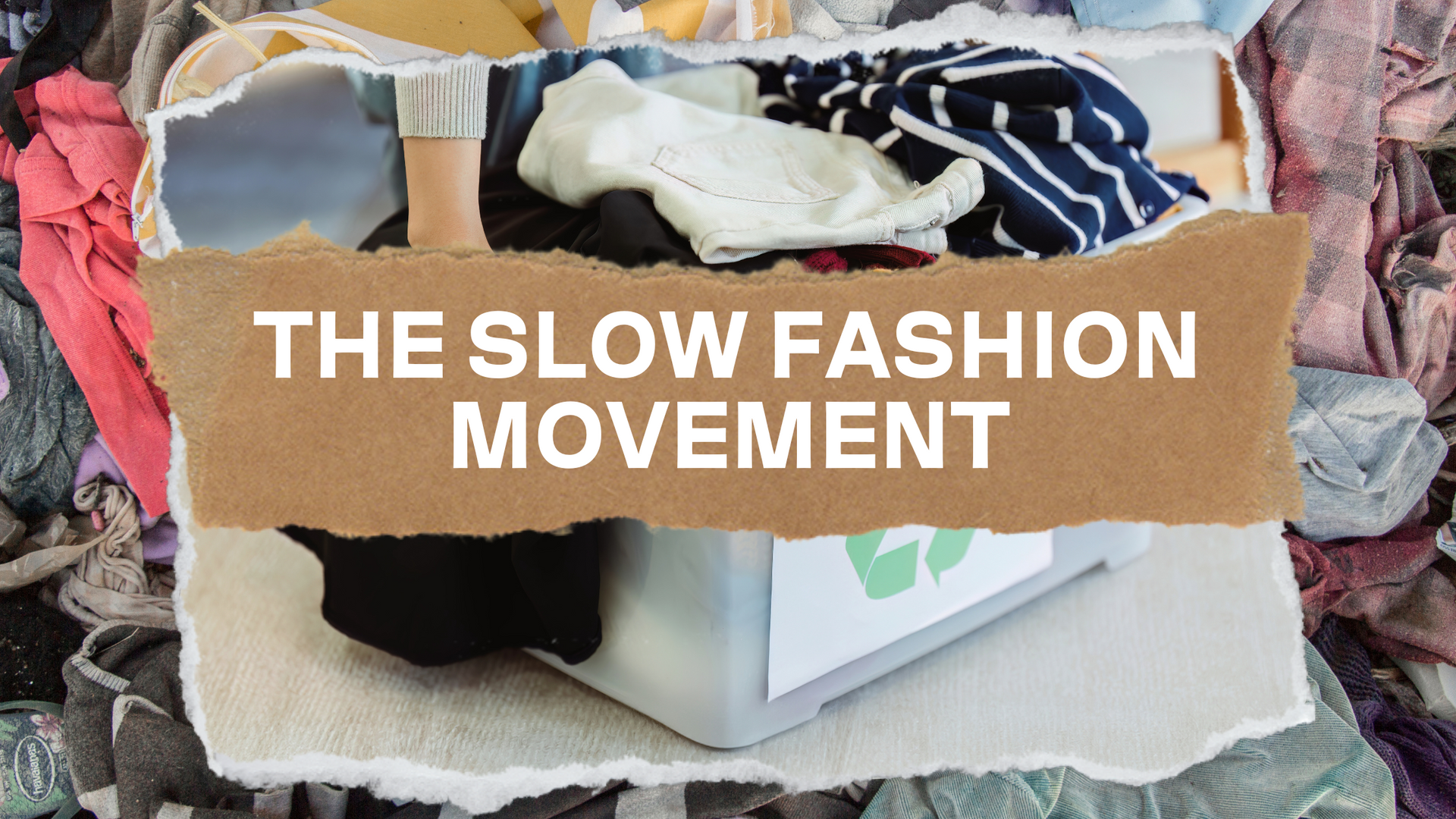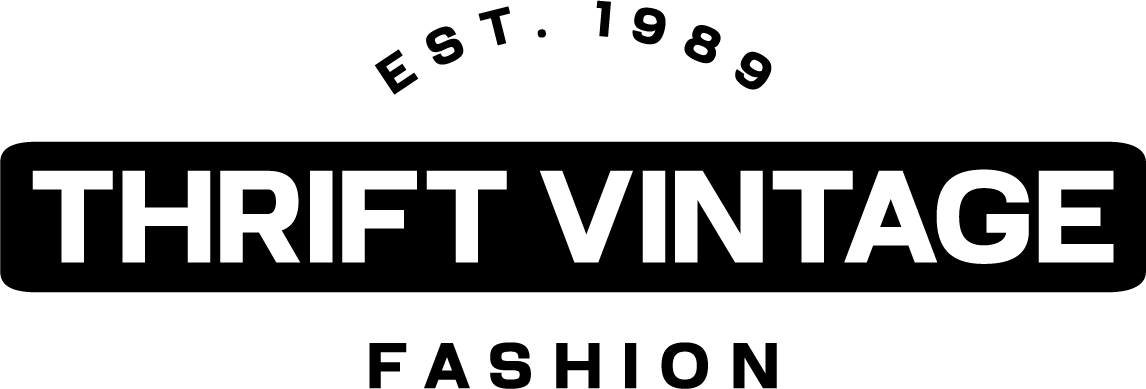
Embracing the Slow Fashion Movement: What It Means for Secondhand Clothing Resellers
The slow fashion movement has gained significant traction in recent years, reshaping how consumers think about their wardrobes and inspiring businesses to adopt more sustainable practices. For secondhand clothing resellers, understanding and embracing this movement isn’t just about staying current—it’s about aligning with a powerful cultural shift that prioritizes sustainability, quality, and mindful consumption.
In this blog, we’ll explore what slow fashion is, its impact on the industry, and how it presents unique opportunities for secondhand clothing resellers, from small bedroom operations to larger brick-and-mortar businesses.
What is Slow Fashion?
At its core, slow fashion is the antithesis of fast fashion. It promotes thoughtful consumption and production of clothing, focusing on quality over quantity, durability over disposability, and ethics over exploitation. While definitions vary, the essence of slow fashion lies in fostering a deeper connection between people and their clothes, encouraging them to buy less, choose well, and extend the life of their garments.
Prominent voices in the fashion and resale space offer nuanced perspectives on slow fashion:
- Kate Fletcher, a pioneer of the concept, describes slow fashion as “an approach that considers the processes and resources required to make clothing, focusing on sustainability and encouraging buying better quality garments that will last longer.”
- Orsola de Castro, co-founder of Fashion Revolution, emphasizes its ethical dimension, stating, “Slow fashion is about designing, producing, consuming, and living better. It is about valuing the makers, materials, and the impact on the planet.”
For resellers, these interpretations underscore the importance of offering thoughtfully curated, high-quality items that align with the slow fashion ethos.
Slow Fashion’s Growing Influence
The slow fashion movement is not just a passing trend—it is a response to pressing environmental and social issues exacerbated by fast fashion. The global fashion industry is responsible for significant carbon emissions, water waste, and unethical labor practices. In contrast, slow fashion seeks to address these challenges by promoting:
- Sustainability: Encouraging the use of eco-friendly materials and reducing waste through recycling and upcycling.
- Quality: Prioritizing garments that are made to last, often with timeless designs that transcend seasonal trends.
- Ethical Practices: Ensuring fair wages and safe working conditions for garment workers.
For consumers, slow fashion is a way to align their values with their purchasing habits. A growing awareness of the environmental impact of their choices has led many to seek alternatives to fast fashion, creating a burgeoning market for secondhand clothing.
Why Slow Fashion Matters to Resellers
As a secondhand clothing reseller, the slow fashion movement represents both a validation of your business model and a significant growth opportunity. Here’s why:
1. Extending Garment Lifecycles
The core principle of slow fashion—extending the lifecycle of clothing—is perfectly aligned with the resale market. By offering pre-loved, high-quality garments, resellers give consumers an ethical and sustainable way to participate in the slow fashion movement. Each item sold represents a step toward reducing waste and conserving resources.
2. Highlighting Quality Over Quantity
Resellers have the unique advantage of curating collections that emphasize quality. Unlike fast fashion’s disposable garments, secondhand resellers can focus on timeless pieces that were made to last. Highlighting this distinction can attract customers who value craftsmanship and durability.
3. Meeting Demand for Affordable Sustainability
While slow fashion often highlights luxury or designer brands, secondhand resellers democratize the movement by offering sustainable options at accessible price points. This affordability ensures that more consumers can make ethical choices without compromising their budget.
How Resellers Can Embrace the Slow Fashion Movement
Here are actionable ways to incorporate slow fashion principles into your resale business:
1. Curate Thoughtfully
Focus on sourcing high-quality items that align with slow fashion values. Look for brands known for their durability, timeless styles, and ethical practices. Vintage pieces and well-made basics are particularly appealing to slow fashion advocates.
2. Educate Your Customers
Use your platform to inform buyers about the benefits of slow fashion and the impact of their purchases. Highlight how choosing secondhand supports sustainability and reduces the environmental footprint of their wardrobe.
3. Emphasize Longevity
Encourage your customers to care for their purchases by sharing tips on garment maintenance and repair. This not only extends the life of the items but also reinforces your role as a partner in their slow fashion journey.
4. Collaborate and Advocate
Partner with other businesses or organizations that promote sustainable fashion. Collaborations can include repair workshops, clothing swaps, or events that celebrate the principles of slow fashion.
The Ethical and Economic Upside
One of the most compelling aspects of slow fashion for resellers is its ethical and economic alignment. By participating in the slow fashion movement, you’re not only contributing to a more sustainable and equitable industry but also tapping into a market that values these principles. This dual benefit allows you to build a business that’s both profitable and purpose-driven.
For small resellers, this might mean sourcing fewer but better items to create a more curated collection. For larger operations, it could involve educating your staff about slow fashion principles to better serve eco-conscious customers. Regardless of scale, integrating slow fashion into your business strategy can deepen customer loyalty and set you apart in a competitive market.
The Path Forward
As the slow fashion movement continues to grow, secondhand clothing resellers are uniquely positioned to lead the charge. By offering quality garments that align with sustainability and ethical practices, you can meet the needs of today’s conscious consumers while fostering a more thoughtful and responsible fashion industry.
The future of fashion isn’t just about what’s new—it’s about what endures. By embracing the principles of slow fashion, you can play a vital role in shaping that future, one piece at a time.
